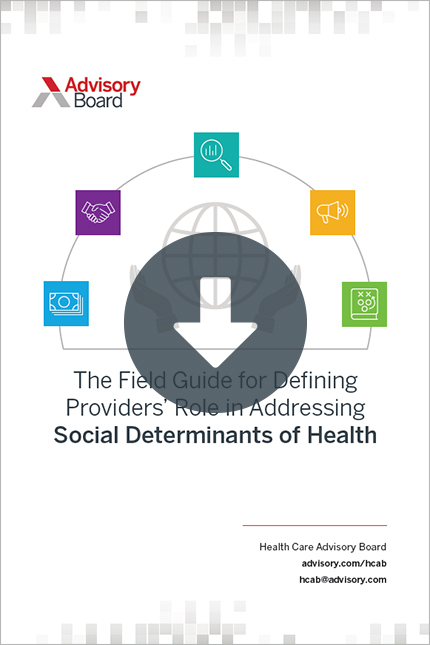Auto logout in seconds.
Continue LogoutAcknowledging that the organization is historically "rooted in white patriarchy and affluent supremacy," the American Medical Association (AMA) on Wednesday released a report detailing its plans to "play a more prominent role in the current national reckoning on equity and justice" and "pivot from ambivalence to urgent action."
How to advance equity for your workforce, patients, and community
How the organization's push for health equity got started
According to AMA, the organization's push for health equity began in 2018 at a meeting of AMA's House of Delegates. During the meeting, the organization's Health Equity Task Force, which was a time-limited group appointed by AMA's Board of Trustees, presented a report outlining a plan for progress towards health equity.
In April 2019, AMA launched the AMA Center for Health Equity and hired Aletha Maybank as AMA's first chief health equity officer.
AMA acknowledges its past
In the report, AMA included a list of actions it has taken in its 174-year history that were discovered by the organization's archives team as it attempted to acknowledge the organization's troubling past.
"No organization can do this antiracism work without looking at their own past," Maybank said.
These actions included but were not limited to: acts by J. Marion Sims, a former AMA president from the late 1870s, who performed vaginal surgeries on enslaved women without anesthesia; then-president Alfred Stillé's assertion in 1871 that women were inferior to men in all respects; and the AMA-supported Flexner Report, which resulted in the closing of several Black and female-only medical schools.
The report also acknowledged a more recent instance from earlier this year, when a host on a podcast produced by its flagship medical journal, JAMA, questioned whether structural racism existed, and when a promotional tweet for the podcast said "no physician is racist."
In addition, AMA in the report said that the organization has failed to engage with issues of racism and health inequity. "We cannot deny that AMA's silence has … contributed to and had a negative impact on historically marginalized and minoritized communities," the report said.
The report also includes a primer on equity, including a list of definitions "to make sure it met the medical community where they are at and to move them along," Maybank said.
AMA pledges to advance health equity
AMA in the report also outlined a three-year plan for action, which includes five strategic approaches:
- Embedding social and racial justice into the enterprise, culture, systems, policies, and practices of AMA;
- Building alliances and sharing power with historically marginalized and minoritized physicians and other stakeholders;
- Ensuring there are equitable structures and opportunities in innovation;
- Making it a priority to address all determinants of health and the "upstream" root causes of health inequities; and
- Developing paths for truth, racial healing, and reconciliation from AMA's past.
In a statement, AMA president-elect Gerald Harmon said AMA has a lot of work to do, but called the organization's plan "a step forward in a much longer journey."
Reactions
David Ansell, an SVP for community health equity at Rush University Medical Center, praised AMA's report, calling it a "landmark document" for the organization.
"It really should be taught widely across medicine because it's language that has not been central to the organization or the practice of medicine in the United States and needs to be," he said.
Similarly, Brittani James, an anti-racism activist and doctor in Chicago, said the plan is "a great first step" with impressive goals.
However, Raymond Givens, a cardiologist at Columbia University Irving Medical Center, said that while the plan is "thoughtful and earnest," it is "lacking in targets, timelines, and teeth."
For instance, he said he was disappointed the plan was focused heavily on diversity training, which he is skeptical can actually foster change. He said there should instead be a greater focus on increasing diversity at AMA, journals, and in medicine.
"While there's discussion about truth, reconciliation, racial healing, and transformation, there's no discussion about the specific debt AMA owes in light of the damage it has caused with its historic policies and its more recent refusal to step in and move beyond sloganeering and advocacy to being a bully for social justice," Givens said. "What's needed is a big, bold, aggressive, heavily endowed, and disruptive approach—a Marshall Plan for health equity. I'm still waiting for that" (McFarling, STAT News, 5/11; Tanner, Associated Press, 5/11; AMA release).
Don't miss out on the latest Advisory Board insights
Create your free account to access 1 resource, including the latest research and webinars.
Want access without creating an account?
You have 1 free members-only resource remaining this month.
1 free members-only resources remaining
1 free members-only resources remaining
You've reached your limit of free insights
Become a member to access all of Advisory Board's resources, events, and experts
Never miss out on the latest innovative health care content tailored to you.
Benefits include:
You've reached your limit of free insights
Become a member to access all of Advisory Board's resources, events, and experts
Never miss out on the latest innovative health care content tailored to you.
Benefits include:
This content is available through your Curated Research partnership with Advisory Board. Click on ‘view this resource’ to read the full piece
Email ask@advisory.com to learn more
Click on ‘Become a Member’ to learn about the benefits of a Full-Access partnership with Advisory Board
Never miss out on the latest innovative health care content tailored to you.
Benefits Include:
This is for members only. Learn more.
Click on ‘Become a Member’ to learn about the benefits of a Full-Access partnership with Advisory Board
Never miss out on the latest innovative health care content tailored to you.

